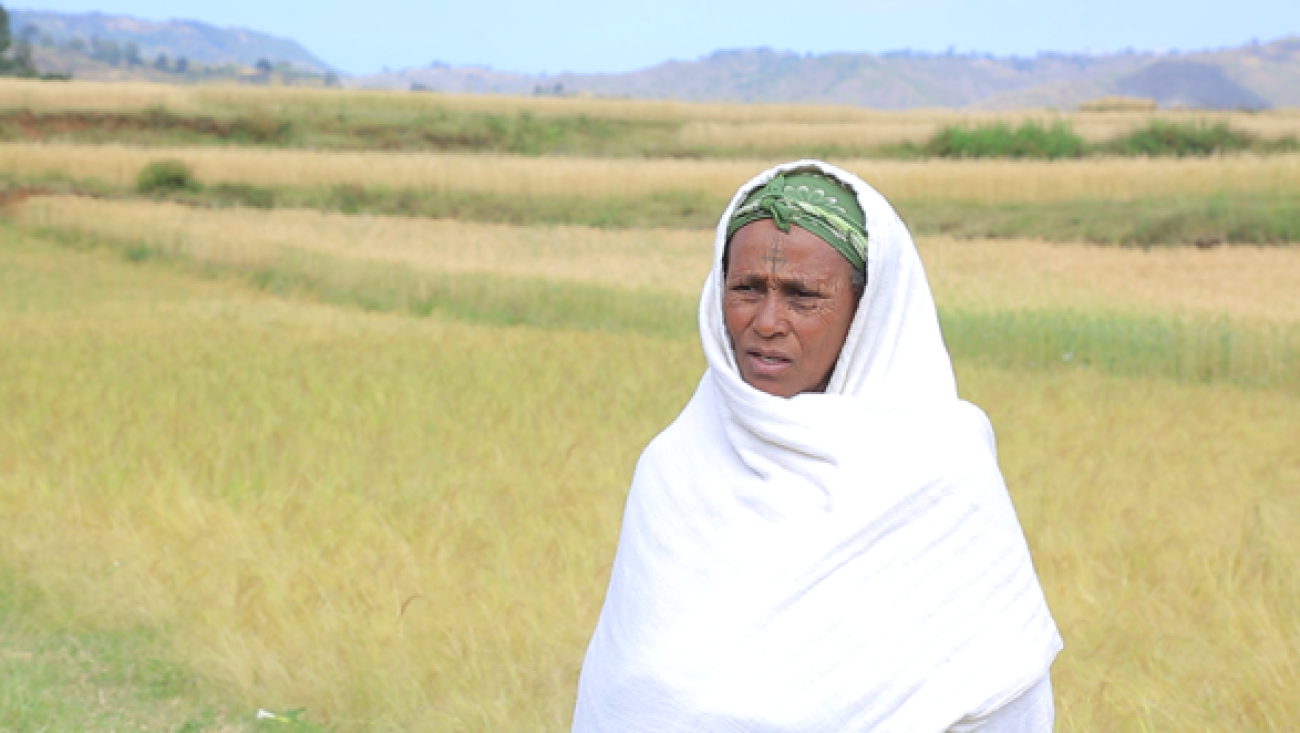A major outbreak of desert locusts, the worst in Ethiopia in decades, had been affecting the agriculture producers in Tigray since 2019. As many families suffered severely, the Ethiopia Emergency Locust Response Project was designed and funded by the World Bank (WB) from June 2020. On behalf of the Government of Ethiopia and the Ministry of Agriculture, UNOPS implemented a component of the project - Livelihoods Protection and Rehabilitation in Tigray Regional State.
The producers in Degua Tembien Woreda received support from the project in seeds and fertilizers, in order to recultivate their fields.
“UNOPS has provided my family of nine with 25 kg of wheat, 25 kg of Urea and 25 kg of NPS fertilizer. We were able to cultivate abundant wheat, thanks to the fertilizers we were supplied with. We received the finest variety of wheat available that we were able to sow. This has been a life changing experience for us and our community at large. We anticipate an abundant harvest, given the satisfactory outcome of the sowing process. We are profoundly thankful for the invaluable support we received, and I believe it will help improve our lives for the better,” Amit Hailay, the project beneficiary from Degua Tembien says.
Another Degua Tembien farmer Kidu Gebrezgher explains how important the support was to the entire community.
“The support provided by the World Bank and Ethiopian Government is very good. Especially here, we have many poor households, disabled and elderly who had no guardians. Those who could have otherwise sold or rented their land to feed themselves have reached a better situation because of the seed support”, Gebrezgher states.
His family of seven received 25 kg wheat, 25 kg of teff and 50 kg fertiliser, so they expect a fruitful yield.
“These seeds are very good, giving good stems and branches, with a lot of variety. In comparison, the local seed sown around here is easily susceptible to fungus and ice. But after three years of Tigray region’s blockage from every access, the community had faced many challenges with all the problems and especially because the seeds were also not provided. But now, we are hopeful that this support will lead us to a better life,” Gebrezgher concludes.
The Project covered 28 woredas in Tigray, thus providing support to restoring the agriculture production. The area coverage for crop seed was 23,788 hectares, exceeding the initial set target. Beneficiaries were provided with kekeba, kingbird and wane wheat seeds, quncho and boset teff seeds, melkassa-4 maize and chickpea seeds, while in addition to this, urea and NPS fertilizers were also delivered.
The priest Sahle Hadera, a resident of Degua Tembien, has a family of eight, living in the area where the wheat is mainly sown.
“Now when we look at the seeds provided to us by UNOPS - it is very good - and providing such wheat seeds at this time is very helpful. We are grateful, as during the hard times we didn't have any seeds on hand to sew. But we became successful after the Government supported us with the seeds and fertiliser at the same time. So we are in a good condition so far and we have seen that it is good during the harvesting period too. This brings a lot of change in our life. We started this from zero and reached 7 and 8 quintals,” Sahle Hadera says.



